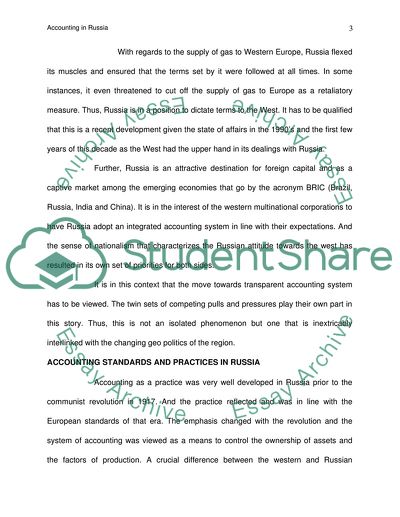Cite this document
(Accounting in Russia Coursework Example | Topics and Well Written Essays - 1750 words, n.d.)
Accounting in Russia Coursework Example | Topics and Well Written Essays - 1750 words. https://studentshare.org/finance-accounting/1551784-accounting-in-russia
Accounting in Russia Coursework Example | Topics and Well Written Essays - 1750 words. https://studentshare.org/finance-accounting/1551784-accounting-in-russia
(Accounting in Russia Coursework Example | Topics and Well Written Essays - 1750 Words)
Accounting in Russia Coursework Example | Topics and Well Written Essays - 1750 Words. https://studentshare.org/finance-accounting/1551784-accounting-in-russia.
Accounting in Russia Coursework Example | Topics and Well Written Essays - 1750 Words. https://studentshare.org/finance-accounting/1551784-accounting-in-russia.
“Accounting in Russia Coursework Example | Topics and Well Written Essays - 1750 Words”. https://studentshare.org/finance-accounting/1551784-accounting-in-russia.


